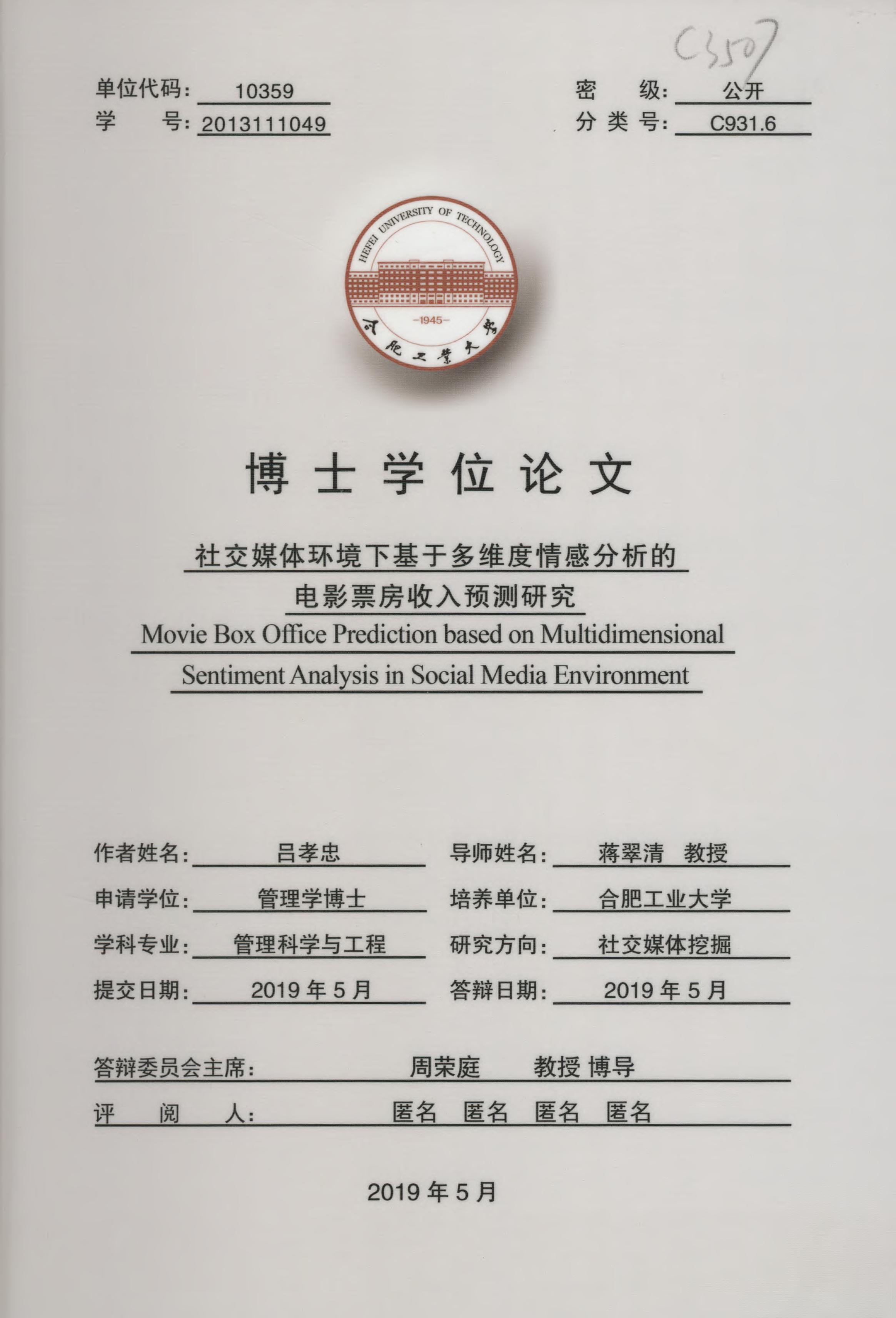| 英文摘要 |
The box-office revenue is the most direct indicator of the commercial success of a film. Box-office revenue prediction can guide movie producers to adjust productions of films and help distributors and exhibitors make marketing plans and release plans, so as to maximize box-office revenues and reduce risks. However, there is still much room for improvement in the accuracy of previous box-office revenue prediction models. With the popularity of Web2.0, a large amount of electronic word-of-mouth (eWOM) about movies has been accumulated on various social media, and moviegoers are often influenced by eWOM to change their movie-watching plans. Therefore, using social media data to predict box-office revenue has become a research hotspot. Although the usage of eWOM has greatly improved the accuracy of box-office revenue prediction, the over-application of the mindset of “be correlated, not causal” makes the robustness of prediction models not guaranteed. Therefore, it is necessary to extract the film dimension information that has a causal relationship with box-office revenue from the eWOM, analyze the influence relationship to guide the production of new films and build a more robust and accurate prediction model for box-office revenue. The research work and contributions of this dissertation mainly include: (1)Based on the multi-attribute attitude theory, Multidimensional Sentiment Analysis (MDSA) framework is constructed to study dimension sentiment mining and analysis in film eWOM. The three important dimensions of film perceived by consumers in eWOM, namely movie star, plot and genre, are extracted, and it is found that there are significant differences in the evolution rules of audiences' sentiments in the three dimensions during the release of films. (2)Dynamic panel data model and system generalized method of moments estimation method are used to study the influence of dimension sentiment on film box-office revenue. The results of empirical study show that not all sentiments contained in eWOM can affect box-office revenues, and the influence of sentiment on box-office revenues varies with different dimensions and polarities. Meanwhile, the influence of dimension sentiment on sales is moderated by production budget and variance of dimension sentiment. The positive sentiments of star dimension positively affect the box-office revenues of high-budget films, while the negative sentiments of star dimension positively affect the box-office revenues of low-budget films. The positive (negative) sentiments of plot dimension positively (negatively) influence the box-office revenues of low-budget films. The sentiment variance of star dimension negatively moderates the positive effects of star dimension sentiments. (3)Using multivariate linear autoregressive algorithm and neural network algorithm, this paper proposes autogressive dimension sentiment model and positive-negative dimension sentiment model to study the prediction of daily box-office revenues and open-week box-office revenues. It is found that the prediction accuracy of the proposed model is higher at the initial stage of film release. The results also proved that the dimension sentiment extracted by the MDSA framework can improve the accuracy and robustness of the box-office revenue forecasting model. KEYWORDS: social media; box-office revenue forecasting; sentiment analysis; topic model; regression algorithm
|

